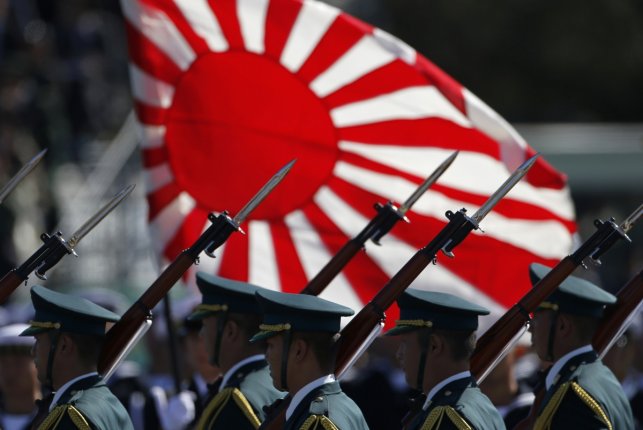
Facing rising challenge from China in the East China Sea and amid an escalating military threat from North Korea, the Japanese government has approved a record rise in military spending. The plan approved by Prime Minister Shinzo Abe authorises a defence outlay of 5.13 trillion yen ($43.66 billion) for the year starting April 1, an increase of 1.4 percent over the previous year.
Japan Times said this is the fifth straight year in which defence spending has increased since Abe took office in 2012. High ranking officials in the ministry said the rise in defence outlay is meant for meeting China's increasing maritime assertiveness and North Korea's ballistic missile development.
What are Japan's defence priorities?
Military observers say Japan will spend more money on its ballistic missile defence systems in view of the 20 ballistic missile tests North Korea conducted this year and Pyongyang's belligerent stance. Japan will also have to beef up its security systems along the East China Sea where its territorial claims have been increasingly challenged by China in recent years.
Japan will also need to tighten monitoring of the 1,400km-long island chain on the southern edge of the East China Sea and invest in new interceptor missile system which is jointly developed by the United States. The disputed Senkaku island chain, which is known in China as Diaoyu, became a point of contention between Tokyo and Beijing when China challenged Japan's authority over the islands in 1970.
Japan also plans to strengthen its Coast Guard in order to protect the uninhabited islands, which saw repeated territorial violations by the Chinese coast guard earlier this year. It is reported that Japan will press into service new patrol ships and the hire more than 200 more personnel for the coast guard.
Under nationalist Abe, Japan's military principles have undergone subtle and nuanced changes over the years. In March, a new law passed by parliament allowed Japan's Self-Defence Forces (SDF) to participate in armed conflicts overseas, marking the most decisive break yet from the pacifist principles the country adopted after the end of World War II.








